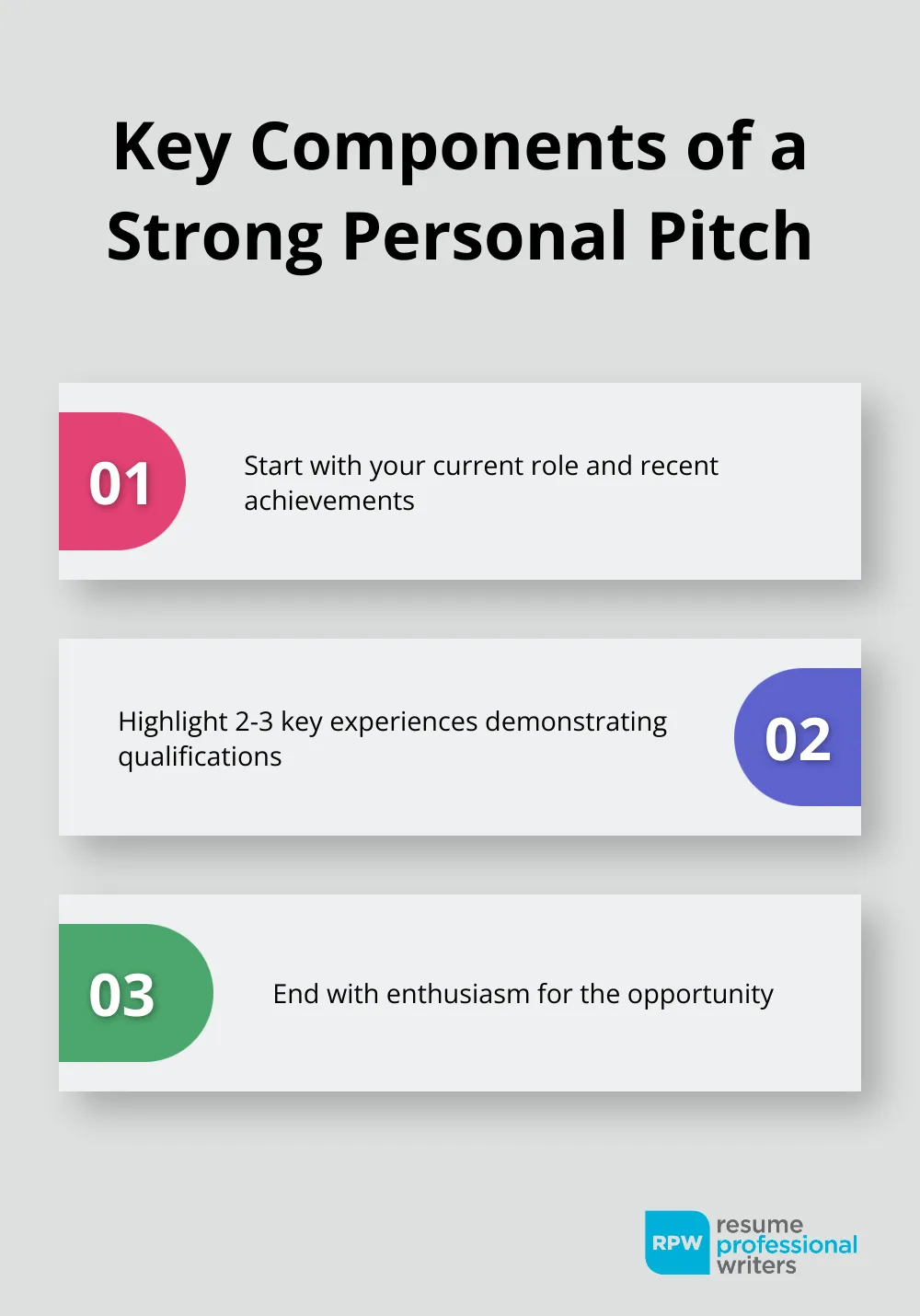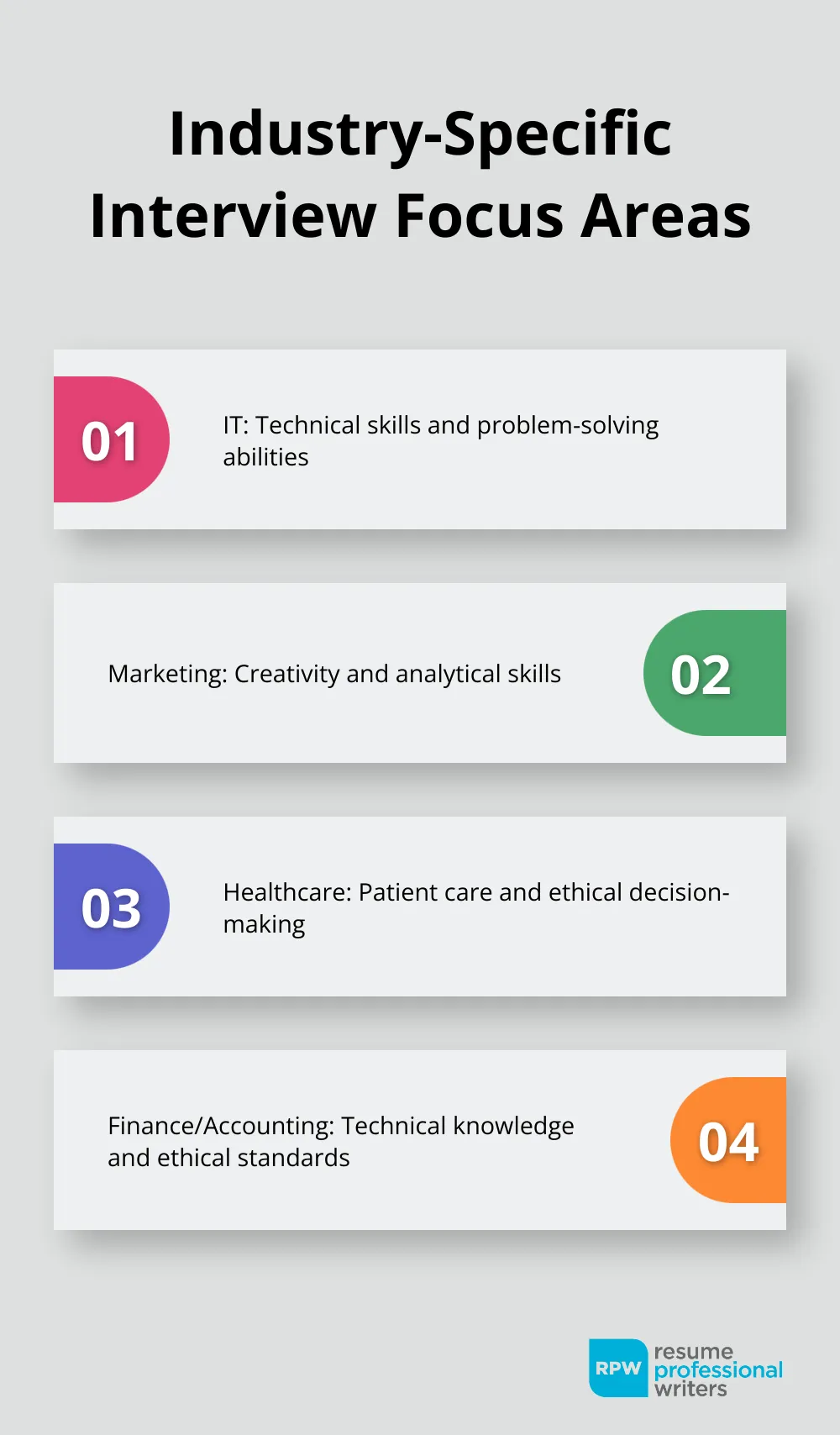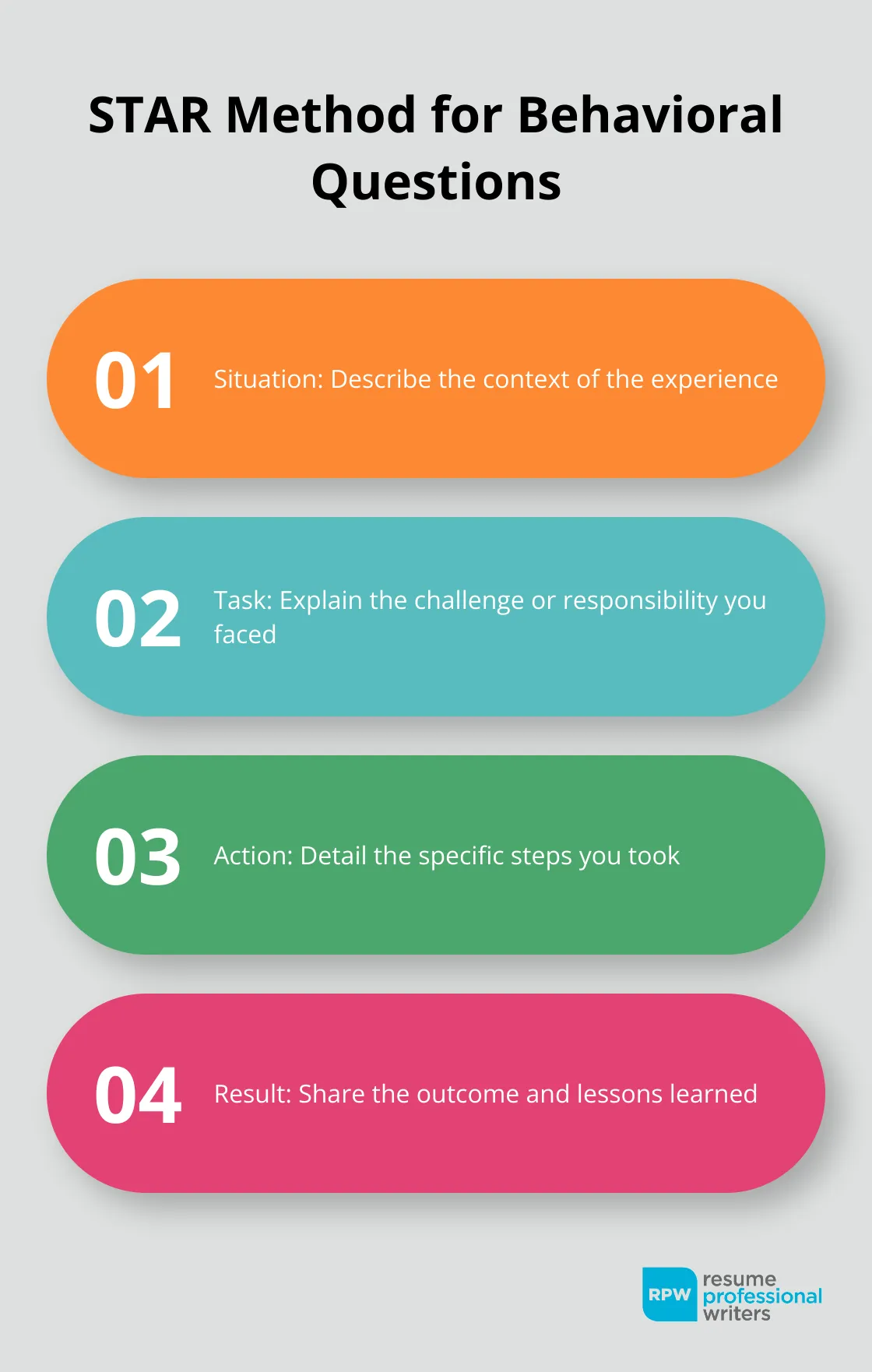Job interviews can be challenging, but having the right tools, like sample interview questionnaires, can give you the confidence and preparation you need to succeed. Exploring carefully designed sample interview questionnaires helps you anticipate common interview questions and develop effective, memorable responses.
This comprehensive guide features expertly crafted questionnaire topics, from general interview questions to role-specific inquiries and behavioral assessments. Use these insights and practical tips to boost your confidence, ace each interview round, and increase your chances of landing your dream job.
Mastering Common Interview Questions
Crafting Your Personal Pitch
When an interviewer asks, “Tell me about yourself,” they invite you to present your professional story. Start with a brief overview of your current role and most recent achievements. Then, highlight two or three key experiences that demonstrate your qualifications for the position. End with a statement about why this opportunity excites you. Keep your answer concise (try for about 60-90 seconds).
Demonstrating Company Knowledge
“Why do you want to work for our company?” is your chance to show you’ve done your homework. Research the company’s mission, recent projects, and industry standing. Identify specific aspects that align with your career goals and values. For example, you might say, “Your company’s commitment to sustainability impresses me, as evidenced by your recent initiative to reduce carbon emissions by 30% over the next five years. This aligns with my personal passion for environmental conservation.”
Discussing Strengths and Weaknesses
When addressing your greatest strengths and weaknesses, be honest and strategic. For strengths, choose qualities directly relevant to the job and back them up with specific examples. For weaknesses, mention real areas for improvement, but focus on how you actively work to address them. For instance, “I’ve sometimes struggled with public speaking, but I take weekly Toastmasters classes to improve my skills.”
Outlining Your Five-Year Plan
“Where do you see yourself in five years?” is not about predicting the future. It’s about demonstrating your ambition and how this role fits into your career trajectory. Align your answer with realistic growth opportunities within the company. You might say, “In five years, I hope to have developed expertise in [specific area relevant to the job] and taken on increasing responsibilities, perhaps in a team leadership role.”
Practicing Your Responses
Authenticity is key in answering these questions. Tailor your responses to reflect your unique experiences and aspirations while aligning with the company’s needs and culture. Practice your answers, but avoid sounding rehearsed. Thorough preparation will help you approach your interview with confidence and make a lasting impression.

As we move forward, let’s explore industry-specific interview questions that will further enhance your interview preparation.
Tailoring Your Answers for Industry-Specific Interviews
Industry-specific interview questions test your expertise and fit for particular sectors. Different fields require unique skill sets and knowledge bases. Interviewers use targeted questions to assess your readiness for the role. This chapter explores common questions across various industries to help you prepare effectively.
Information Technology (IT) Professionals
IT interviews focus on technical skills, problem-solving abilities, and adaptability to new technologies. You might encounter questions like:
“Describe a complex technical problem you’ve solved and the steps you took to resolve it.”
This question assesses your troubleshooting skills and technical knowledge. Provide a specific example, detailing the problem, your analysis process, and the solution you implemented. Emphasize the impact of your solution on the project or organization.
“How do you stay current with rapidly evolving technologies in the IT field?”
Highlight your commitment to continuous learning. Mention specific courses, certifications, or side projects you’ve undertaken to expand your skills. For instance, you might discuss your recent completion of a cloud computing certification or your participation in coding challenges on platforms like HackerRank.
Marketing Professionals
Marketing interviews often explore your creativity, analytical skills, and understanding of consumer behavior. Prepare for questions such as:
“Can you walk us through a marketing campaign you’ve led from conception to execution?”
This question evaluates your strategic thinking and project management skills. Outline the campaign objectives, target audience, channels used, and key performance indicators (KPIs). Be sure to highlight the results and any lessons learned from the experience.
“How would you measure the success of a social media marketing campaign?”
Demonstrate your analytical skills by discussing relevant metrics such as engagement rates, click-through rates, conversion rates, and return on investment (ROI). Explain how you would use tools like Google Analytics or social media insights to track these metrics and inform future strategies.
Healthcare Professionals
Healthcare interviews often focus on patient care, ethical decision-making, and teamwork. Be prepared for questions like:
“Describe a situation where you had to handle a difficult patient or family member. How did you approach it?”
This question assesses your communication and conflict resolution skills. Provide a specific example, emphasizing your empathy, active listening, and ability to de-escalate tense situations. Highlight any positive outcomes or lessons learned from the experience.
“How do you ensure patient confidentiality and adhere to HIPAA regulations in your daily work?”
Demonstrate your knowledge of healthcare regulations and commitment to ethical practices. Discuss specific protocols you follow, such as securing electronic health records, obtaining proper consent for information sharing, and maintaining discretion in discussions about patient care.
Finance and Accounting Professionals
Finance and accounting interviews often test your technical knowledge, attention to detail, and ethical standards. Expect questions such as:
“Can you explain a time when you identified a discrepancy in financial reports? How did you handle it?”
This question evaluates your analytical skills and integrity. Describe the specific discrepancy you found, the steps you took to investigate it, and how you communicated your findings to relevant stakeholders. Emphasize your commitment to accuracy and transparency in financial reporting.
“How do you stay informed about changes in accounting standards or financial regulations?”
Highlight your proactive approach to professional development. Mention specific resources you use, such as industry publications, webinars, or professional associations. For example, you might discuss your regular review of updates from the Financial Accounting Standards Board (FASB) or your participation in continuing education courses offered by the American Institute of Certified Public Accountants (AICPA).

Preparing thoughtful responses to these industry-specific questions will demonstrate your expertise and readiness for the role. The key is to provide concrete examples from your experience that showcase your skills and align with the company’s needs. As we move forward, let’s explore behavioral interview questions and effective strategies to respond to them.
Mastering Behavioral Interview Questions
Navigating Challenging Work Situations
When an interviewer asks about a challenging situation at work, select a specific instance that showcases your leadership, problem-solving, or adaptability. For example, describe a time when you met a tight deadline with limited resources. Explain your steps to prioritize tasks, delegate responsibilities, and motivate your team. Highlight the positive outcome and lessons learned from the experience.
Demonstrating Effective Teamwork
To illustrate your teamwork skills, choose an example that highlights your ability to collaborate, communicate, and contribute to a group goal. Discuss a cross-functional project where you played a key role in coordinating efforts between departments. Describe how you facilitated communication, resolved conflicts, and ensured everyone’s contributions were valued. Try to quantify the project’s success (e.g., improved efficiency or cost savings).
Handling Difficult Interpersonal Situations
When addressing how you’ve dealt with a difficult customer or colleague, focus on your communication and conflict resolution skills. Describe a situation where you used active listening, empathy, and problem-solving to turn a negative interaction into a positive outcome. Share how you resolved a misunderstanding with a client by clarifying expectations and exceeding their needs. Emphasize the long-term positive impact of your approach, such as strengthened relationships or improved processes.
Managing Stress and Pressure
To answer questions about handling stress and pressure, provide concrete strategies you’ve successfully employed. Discuss your time management techniques, such as using the Pomodoro method to maintain focus during high-pressure periods. Alternatively, describe how you practice mindfulness or exercise to maintain mental clarity. Provide a specific example of a high-stress situation where these techniques helped you perform effectively (e.g., leading a critical presentation or managing multiple urgent deadlines simultaneously).
Preparing for Behavioral Questions
Preparation is key to answering behavioral questions effectively. Use the STAR method (Situation, Task, Action, Result) to structure your responses. This approach helps you provide concise, relevant answers that showcase your skills and experiences. Practice your responses out loud to ensure they sound natural and confident. Consider working with a professional resume writing service (like Resume Professional Writers) to refine your interview skills and craft compelling stories that highlight your strengths.

Ace Your Next Interview with Expert Guidance
Mastering questionnaire interviews requires thoughtful preparation and dedicated practice. Get comfortable with common questions, industry-specific scenarios, and behavioral assessments so you can showcase your qualifications confidently. Practicing your responses out loud—perhaps even with a friend in a mock interview—allows you to hone clarity and conciseness.
Having the right support can give you a real advantage when it comes to job interviews. For standout application materials, consider working with professional resume writing experts who specialize in crafting resumes that highlight your strengths and achievements.
Additionally, sharpening your interview skills is just as vital. Take advantage of practical interview tips and coaching tailored to your industry and career goals—these resources can help you deliver powerful responses and navigate even the toughest questions.
Investing your time in preparation and expert guidance will help you build lasting skills and set you apart throughout your career journey.








